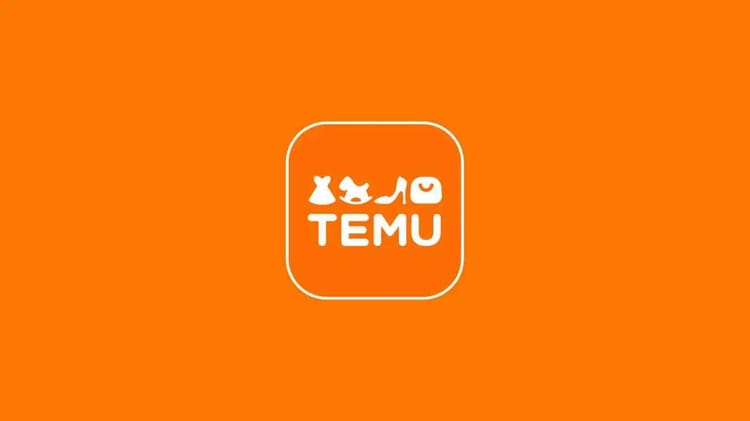Italy bans chatGPT

The artificial intelligence software ChatGPT, developed by US startup OpenAI and supported by Microsoft, has been banned in Italy. The restriction was justified by data security concerns and the service's inability to confirm users' ages. The Guarante, Italy's data protection agency, has directed OpenAI to cease immediately processing people's data locally.
The Guarantee is concerned that ChatGPT's creator violates the General Data Protection Regulation of the European Union (GDPR). The GDPR allows for various scenarios, from permission to the public interest. Still, as Guarante points out, the processing volume required to train these substantial language models makes the legality issue more challenging.
The blocking of ChatGPT in Italy comes days after the European police agency Europol warned that fraudsters and other cybercriminals, including phishing and malware, were planning to utilize the app. Teachers worry that pupils will use the app to cheat, while legislators worry that false information will increase thanks to the program.
The Guarante added that the software "exposes minors to utterly improper answers relative to their degree of development and awareness" because there was no method to confirm the users' ages.
The business has 20 days to rectify the watchdog's concerns or risk a €20 million ($21.7 million) fine, equaling up to 4% of annual sales.
What is chatGPT?
ChatGPT is an AI chatbot developed by OpenAI, which is capable of generating text in a wide range of styles and for different purposes with greater precision, detail, and coherence than its predecessor GPT-3.
It is built on a family of large language models (LLMs) collectively known as GPT-3. ChatGPT is designed to converse with users in a natural language format, and it uses machine learning algorithms to understand the context of the conversation and generate appropriate responses.
To use ChatGPT, users must create an account on the OpenAI website and link a phone number to verify their account.
Many nations have already banned ChatGPT, including China, Iran, North Korea, and Russia. Italy has added its name to the list of nations that have banned ChatGPT amid worries about data security and privacy.
What is GDPR?
The European Union (EU) created and adopted the General Data Protection Regulation (GDPR), a privacy and security law, which went into effect on May 25, 2018.
It is the world's strictest privacy and security law. Each entity that targets or gathers data on individuals in the EU is subject to its requirements. The GDPR offers flexibility for individual member states to modify specific components of the legislation and is directly binding and applicable.
The GDPR upholds fundamental freedoms and rights, such as the right to a private life, a family, a home, and privacy, the protection of personal data, and the freedom of expression and information. The GDPR controls data breaches and calls for organizations that process personal data to protect such data effectively. It is applicable whenever EU users' data is processed.
What are the penalties for violating GDPR?
The General Data Protection Regulation (GDPR) is a comprehensive data protection framework established by the European Union to safeguard the privacy rights of individuals. Organizations that fail to comply with GDPR may face significant penalties, which can be summarized as follows:
- Administrative fines: GDPR enforces two fines levels based on the infringement's severity.
a. Lower-tier fines: Up to €10 million or 2% of the company's global annual turnover of the previous fiscal year, whichever is higher. These fines are typically imposed for procedural or technical violations, such as failing to report a data breach or insufficient record-keeping.
b. Upper-tier fines: Up to €20 million or 4% of the company's global annual turnover of the previous fiscal year, whichever is higher. These fines are reserved for more serious violations, such as infringing on data subjects' rights or failing to obtain valid consent for data processing. - Corrective measures: Data protection authorities (DPAs) can impose corrective measures, including orders to cease non-compliant data processing, rectify data breaches, or delete unlawfully processed data.
- Reputational damage: Violating GDPR can lead to significant reputational harm, demonstrating that the organization failed to safeguard personal data adequately.
- Legal claims: Data subjects affected by GDPR violations may seek compensation for damages suffered, which can result in additional financial liability for the organization.
The actual penalties depend on various factors, such as the nature of the infringement, the organization's prior history, and its cooperation with authorities.
How does GDPR affect non-EU companies?
The GDPR applies to non-EU companies that target or collect data related to people in the EU, regardless of whether they are EU-based organizations or not. The GDPR's extra-territorial effect protects data belonging to EU citizens and residents.
The GDPR is the world's toughest privacy and security law and imposes obligations on organizations anywhere. The GDPR levies harsh fines against those violating its privacy and security standards, with penalties reaching tens of millions of euros.
The GDPR is directly binding and applicable and provides flexibility for individual member states to adjust certain aspects of the regulation. Companies outside the EU have invested heavily to align their business practices with GDPR.
What are the reasons for banning chatGPT in Italy?
Because of worries about data security and privacy, ChatGPT has been prohibited in Italy. The Italian Data Protection Authority (DPA) has issued an order to stop the app, claiming fears that the creator of ChatGPT is infringing the European Union's General Data Protection Regulation (GDPR).
In particular, the software cannot validate users' ages and does not respect user data. In addition, according to the DPA, the app does not give consumers enough information, and using users' data to train the chatbot is not authorized by law.
The restriction was put in place following a data breach on March 20. OpenAI has 20 days to abide by the restriction or risk fines of up to €20M.
Is GDPR fair to non-EU when compared to EU companies?
The GDPR is designed to be a comprehensive data protection regulation that applies equally to EU and non-EU companies when they process the personal data of individuals within the European Union. Therefore, we can analyze the fairness of GDPR based on its territorial scope and impact on companies both within and outside the EU.
- Territorial scope: GDPR applies to all companies processing the personal data of individuals residing in the EU, regardless of the company's location. This means that if a non-EU company offers goods or services to or monitors the behavior of individuals in the EU, it is subject to GDPR. This approach ensures that EU citizens' data is protected consistently, regardless of where the processing company is based.
- Compliance requirements: EU and non-EU companies must comply with the same requirements under GDPR. This includes obtaining appropriate consent, implementing data protection principles, reporting data breaches, and appointing a Data Protection Officer (DPO) when necessary. The GDPR does not impose stricter requirements on non-EU companies.
- Enforcement: GDPR applies the same penalties and enforcement mechanisms for non-compliance to EU and non-EU companies. However, non-EU companies may face additional challenges in coordinating with EU authorities and ensuring compliance due to geographical and jurisdictional differences. To address this issue, GDPR requires non-EU companies to appoint an EU representative as a point of contact for data protection authorities.
GDPR does not inherently impose stricter regulations on non-EU companies.
However, the nature of the territorial scope and compliance requirements may present additional challenges for non-EU companies to ensure compliance. Therefore, the fairness of GDPR ultimately depends on individual perspectives and whether the regulation is seen as a necessary step to protect personal data or as an undue burden on companies operating globally.
Conclusion
Proponents of the ban might argue that it is necessary to protect user privacy and data security, as well as to address potential ethical concerns related to AI-generated content, such as the spread of misinformation or the potential for manipulation. They may believe that until these concerns are adequately addressed, a ban is a fair and responsible way to protect citizens and maintain public trust in technology.
On the other hand, opponents of the ban might argue that it stifles innovation and limits the potential benefits of AI technology, such as improving communication, streamlining business processes, and providing valuable insights. They may believe that a more balanced approach, such as implementing strict regulations and guidelines, would be a fairer way to address potential concerns without hindering technological progress.
Ultimately, the fairness of the ban depends on one's perspective and the priorities given to privacy, security, ethical concerns, and the advancement of AI technology.




